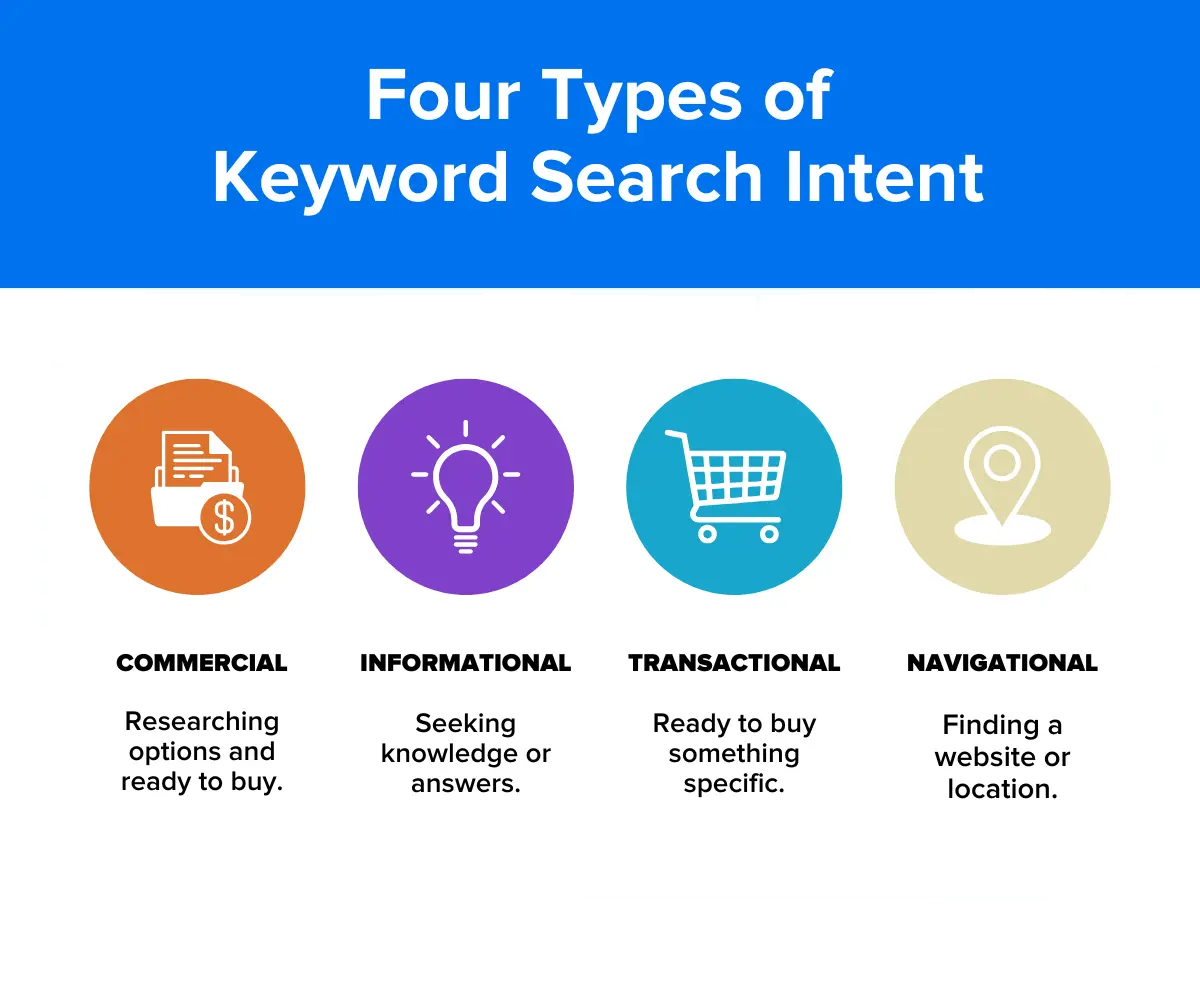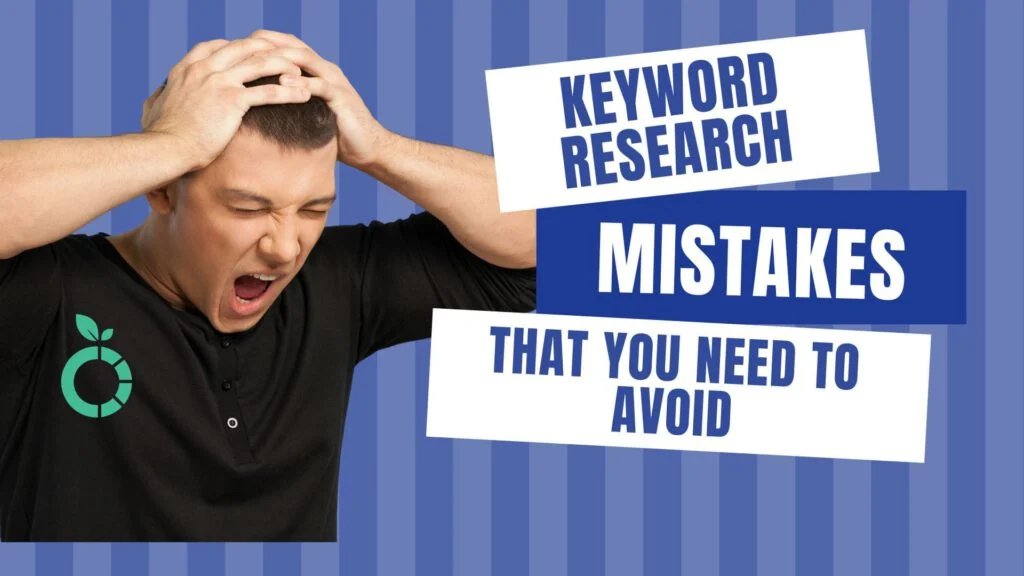In a world where online visibility directly impacts business performance, keyword research is not just a strategy, it’s your digital compass. Whether you’re a small business owner , an eCommerce or a SaaS startup, mastering keyword research can mean the difference between being found and being forgotten.
In this comprehensive guide, you’ll learn how to perform modern, high-impact keyword research tailored to 2025’s digital landscape. We’ll explore the psychology behind search, intent-driven keyword mapping, and actionable tools you can start using today.
Why Keyword Research Still Matters?
Keyword research is not just about identifying words people type into search engines. It’s about understanding your audience, aligning with their search intent, and building content that answers their needs better than anyone else.
Despite evolving search technologies and the rise of AI in digital experiences, the importance of keyword research has only grown. Here’s why:
-
It drives targeted traffic: You’re not just getting any traffic, you’re attracting users actively searching for what you offer.
-
It improves content relevance: Mapping the right keywords to your pages ensures users land where they want to be.
-
It enhances visibility: Keywords help you appear in featured snippets, maps, product listings, and voice search results.
-
It informs product and service decisions: Seeing what people search helps tailor offerings to meet demand.
For businesses, where local intent is critical, keyword research connects you directly with ready-to-buy customers.

Understanding Search Intent
Why intent matters
Imagine someone searches “cheap carpet cleaning Sydney.” Are they looking to book, compare, or learn? Knowing this helps tailor content—product pages for booking, blogs for education, comparison guides for commercial intent.
The Four Main Types of Search Intent:
1. Informational – Users want to learn something.
E.g., “how to fix a leaking tap”
2. Navigational – Users are looking for a specific website or brand.
E.g., “Bunnings Warehouse Brisbane”
3. Transactional – Users are ready to convert.
E.g., “buy cordless drill online Australia”
4. Commercial Investigation – Users are researching before purchasing.
E.g., “best solar panel installer in Perth”
Matching content to the right intent not only improves rankings but enhances user experience and conversion rates.

Top Tools for Effective Keyword Research
1. Google Search Console
Free and reliable. Shows the actual terms users type before visiting your site. Great for refining existing content.
2. Google Trends
Helpful for identifying seasonal topics, especially in Australia where weather-driven services (e.g., air con, roofing) fluctuate.
3. Ubersuggest
A good starting point for small businesses. Provides keyword ideas, volume, difficulty and suggested content topics.
4. AnswerThePublic
Visualises the types of questions Aussies are asking around a keyword. Fantastic for building blog content.
5. SEMrush & Ahrefs
These offer in-depth analytics, including:
-
Keyword gaps vs competitors
-
Traffic potential
-
SERP analysis
Great for enterprise SEO, eCommerce, and high-competition industries.
6. Moz
User-friendly and ideal for local SEO targeting. Great for consultants, trades, and location-based businesses.
7. AI Tools
ChatGPT can rapidly generate keyword clusters, FAQs, and content ideas based on seed keywords.
Finding the Right Keywords for Your Audience
1. Focus on Long-Tail Keywords
These are typically 3–5 words long. Though search volume may be lower, conversion rates are significantly higher.
Example: “emergency electrician in Canberra open now”
2. Keyword Difficulty vs. Opportunity:
Look for the balance:
-
High volume + Low competition = GOLD
-
Low volume + High intent = Conversions
3. Competitor Mining:
Use tools like Ahrefs to reverse-engineer your competitors. What are they ranking for in Sydney or Perth that you’re not?
4. Keyword Clustering:
Group similar keywords under one topic:
-
“solar panel installation Brisbane”
-
“Brisbane solar panel services”
-
“best solar installer in Brisbane”
Cluster them under one page or a series to improve authority and topical relevance.

How to Analyse Keywords Effectively
1. Search Volume
Indicates potential traffic. A keyword with 5,000 monthly searches in Australia may be better than a global one with 50,000 but irrelevant local intent.
2. Keyword Difficulty (KD)
Shows how competitive a keyword is. Low KD keywords are easier to rank for—ideal for new websites.
3. CPC (Cost-Per-Click)
High CPC = high commercial intent. These keywords are more likely to lead to conversions.
E.g., “flood damage restoration Brisbane” might have a CPC of $15+.
4. SERP Features
Does the keyword trigger a featured snippet, map pack, or “people also ask” box? You can optimise content to appear in these areas for better visibility.
5. Seasonality
Example: “air conditioning repairs” spikes in December-February in Sydney, while “heater servicing” rises in May-July in Melbourne.
Mapping Keywords to Your Content Strategy
1. Understand buyer journey stages
-
-
Awareness: “how to choose solar panels”
-
Consideration: “top solar panel brands Australia”
-
Purchase: “buy LG solar panel system Brisbane”
-
2. Use keyword-targeted landing pages
Create dedicated service pages for different offerings and locations.
E.g., “SEO services Perth”, “SEO for eCommerce in Australia”
3. Build topical authority
Use a pillar page for broad topics (e.g., “Complete Guide to Landscaping”) and cluster pages for subtopics (“Lawn maintenance tips”, “Backyard design ideas”).
4. Avoid overlapping content
Ensure each page targets a distinct primary keyword to avoid dilution and ranking issues.
Using Keywords Beyond Just Text
Keywords matter not only in written content but across your entire website’s media.
🎥 Video SEO:
-
Use target keywords in your video title, description, and tags.
-
Add closed captions with your keywords included.
🖼️ Image Optimisation:
-
Alt-text and file names should describe the image using relevant keywords.
📍 Internal Linking:
-
Use keyword-rich anchor text when linking to relevant pages or blog posts.
📊 Structured Data:
-
Implement schema for your location, products, and reviews to increase your visibility on search results.

Common Mistakes to Avoid
❌ Keyword stuffing
Avoid repeating the same phrase unnaturally. Google rewards readable, useful content, not robotic repetition.
❌ Misaligned content
Don’t write a blog post when the intent is commercial. If someone searches “buy business cards Sydney”, they want a product page, not a how-to guide.
❌ Over-focusing on volume
High-volume keywords often have massive competition. Balance them with location-based, low-volume, high-intent keywords.
❌ Ignoring updates
Your keyword strategy isn’t “set and forget.”
Re-audit your keywords every 3–6 months to track new trends, ranking shifts, and algorithmic changes.
❌ One-size-fits-all approach
Sydney’s search habits are not the same as Perth’s. Use geo-specific data when building content.
How to Measure Keyword Success
📊 Measure what matters
It’s not about how many keywords you rank for. It’s about whether they bring you the right people.
Track:
-
Position movements over time
-
Organic traffic from target keywords
-
CTR from SERPs
-
Time spent on page
-
Conversion rates from SEO traffic
Tools to Use:
-
Google Search Console: Free and offers insight into impressions and clicks.
-
GA4: Understand how visitors behave post-click.
-
Rank tracking software: SEMrush, Ahrefs or Accuranker.
Future-Proofing Your Keyword Strategy
The way people search is changing rapidly. Here’s how to stay ahead:
-
Voice Search: Optimise for conversational phrases.
E.g., “What’s the best solar installer near me?” -
Visual Search: Use structured data and image SEO to show up in visual results.
-
AI Search Interfaces: Answer questions clearly and succinctly. Use headings, bullet points, and summaries to make content easy to parse.
-
Hyperlocal SEO: Add suburbs and landmarks to your keyword strategy.
E.g., “Plumber in South Yarra near Chapel Street” -
Zero-Click Searches: Use featured snippets, FAQs, and schema markup to capture attention even if users don’t click through.
Conclusion: Keyword Research is Your SEO Superpower
Effective keyword research is the cornerstone of every great SEO strategy. It connects your business with your ideal audience, answers their pressing questions, and leads them toward action.
By understanding search intent, using the right tools, analysing with precision, and integrating keywords smartly into your website, you’re not just chasing rankings—you’re building real-world relevance and trust with your customers.
Whether you’re targeting homeowners in Canberra or scaling an online store in Brisbane, keyword research gives you the insights needed to grow smarter, not just louder.
📌 Ready to Take Action?
At Mulwaree Online, we specialise in performing deep, strategic keyword research tailored to your industry, niche, and audience. Whether you’re a local service provider or a national eCommerce brand, we’ve helped clients build high-converting, search-optimised websites across Australia.
We’re proud to be the leading SEO consultants trusted across:
-
Brisbane
-
Canberra
-
Melbourne
-
Perth
-
Sydney
👉 Explore our keyword research and SEO solutions
Let us help your brand rise through the ranks—authentically, strategically, and sustainably.

